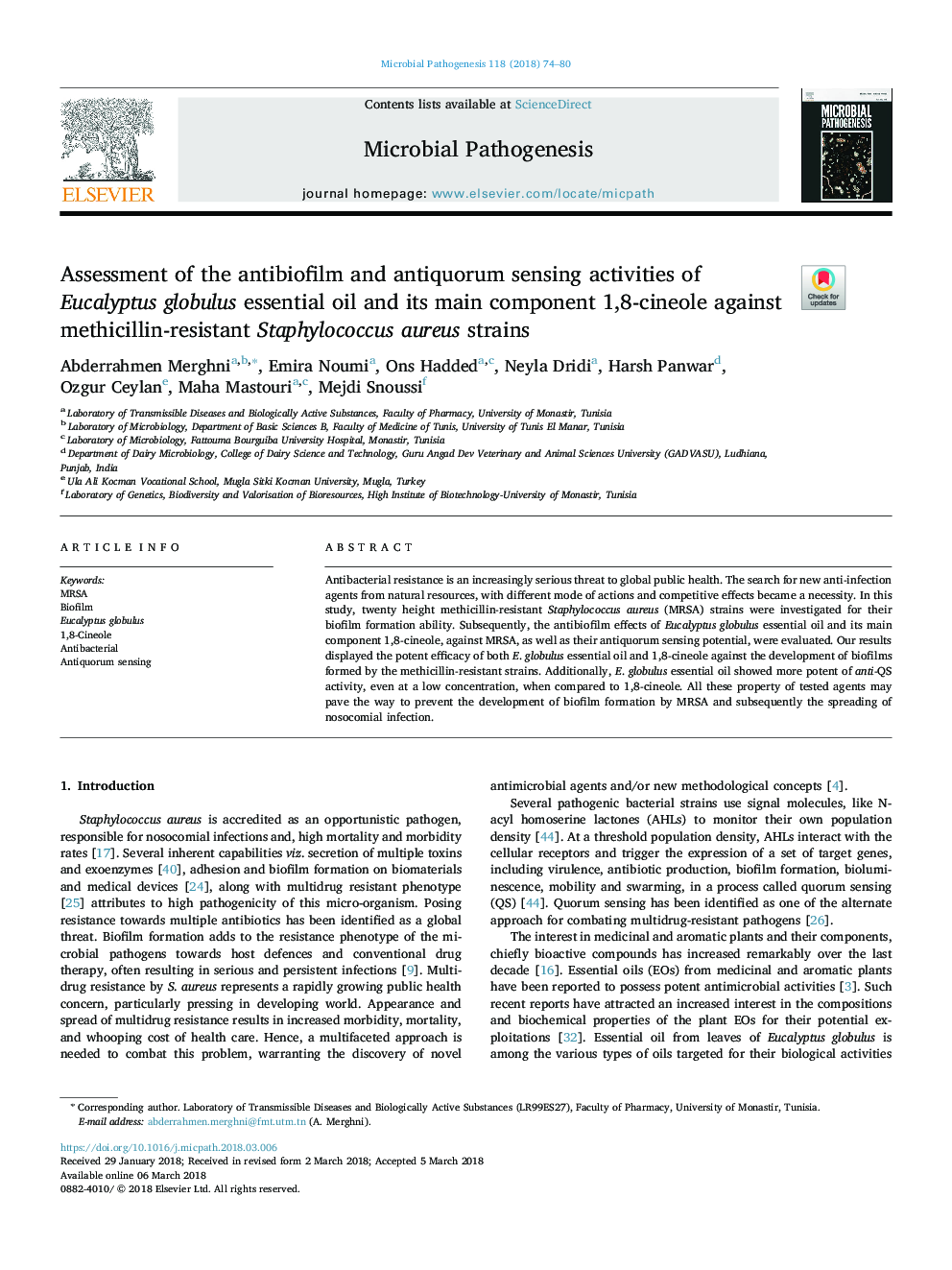| Article ID | Journal | Published Year | Pages | File Type |
|---|---|---|---|---|
| 8749524 | Microbial Pathogenesis | 2018 | 7 Pages |
Abstract
Antibacterial resistance is an increasingly serious threat to global public health. The search for new anti-infection agents from natural resources, with different mode of actions and competitive effects became a necessity. In this study, twenty height methicillin-resistant Staphylococcus aureus (MRSA) strains were investigated for their biofilm formation ability. Subsequently, the antibiofilm effects of Eucalyptus globulus essential oil and its main component 1,8-cineole, against MRSA, as well as their antiquorum sensing potential, were evaluated. Our results displayed the potent efficacy of both E. globulus essential oil and 1,8-cineole against the development of biofilms formed by the methicillin-resistant strains. Additionally, E. globulus essential oil showed more potent of anti-QS activity, even at a low concentration, when compared to 1,8-cineole. All these property of tested agents may pave the way to prevent the development of biofilm formation by MRSA and subsequently the spreading of nosocomial infection.
Related Topics
Life Sciences
Immunology and Microbiology
Microbiology
Authors
Abderrahmen Merghni, Emira Noumi, Ons Hadded, Neyla Dridi, Harsh Panwar, Ozgur Ceylan, Maha Mastouri, Mejdi Snoussi,
